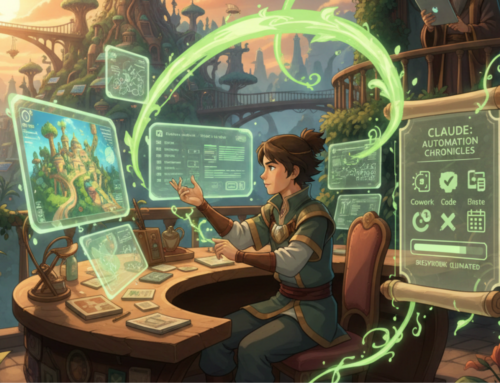“Censorship and political control of AI is a thousand times more dangerous than censorship and political control of social media, maybe a million times more dangerous.”
– Marc Andreessen
There have been a lot of practical advances in AI tools recently, including:
- ChatGPT Agent – now it can do things, not just make things
- OpenAI GPT-5 – including a rollback for 4o nostalgists
- Grok Imagine – it’s like if Pinterest and Midjourney had a baby
- OpenAI gpt-oss – download and run a local LLM from a laptop
- Google’s Gemma LLM – can be run from a mobile phone
I’m upskilling myself in these new tools, so I can pass on what I learn to the students in my AI training workshops.
(Webinar series launching next week!)
What has me most interested is the new release last month of AI strategies from both the US and China.
You can read the reports in their entirety at the links below, or you can practice your AI skills by adding them to a LLM and asking for an overview. Try having a conversation with these documents.
The United States AI Strategy: Deregulation and Speed
Released July 23, 2025 by the White House, “Winning the AI Race: America’s AI Action Plan” aims to strip regulatory barriers and turbocharge U.S. dominance in AI. It leans heavily on deregulation, infrastructure buildouts, and alignment with private sector power brokers.
Key Points:
- Deregulation First: Biden-era executive orders on AI safety revoked; fewer federal checks required to innovate.
- State Autonomy: Federal funds tied to compliance, but wide latitude is given to states.
- Private Sector Driver: Big Tech and startups take the lead, with minimal oversight from government.
- Infrastructure Buildout: Fast-track chip fabrication and data centers to fuel growth.
- Anti-DEI Procurement Rules: Federal agencies are barred from using “woke” or “biased” AI models—prioritising capability over ideology.
The China AI Strategy: International Centralisation
Days later on July 26, 2025, Premier Li Qiang announced the “Action Plan for Global Artificial Intelligence Governance” at the World Artificial Intelligence Conference. The strategy emphasizes centralized coordination and pushing for a global governance framework under Chinese leadership.
Key Points:
- Global Governance Role: Proposes an international body of multiple stakeholders to oversee AI safety and standards.
- Centralized Alliances: Huawei, Biren, and others unify chips and models under shared APIs.
- Applied AI: Public safety, healthcare, and governance sectors are already deploying at scale.
- Capital Commitment: Nearly $100 billion pledged to accelerate domestic AI.
- Exportable Standards: Developing a full stack of both technology and rules for allies to adopt as international standards.

Deregulated Innovation vs Centralized Coordination
The U.S. is choosing speed through deregulation, even if it risks fragmentation and politicization. China is choosing coordination through centralization, aiming to set the pace as well as the rules of the game.
For New Zealand, our government’s AI Strategy (which I think is AI Slop) positions us firmly as a follower in the race to AI adoption.
In Reid Hoffman’s new book Superagency: What Could Possibly Go Right with our AI Future, he defines 4 types of AI perspectives:
- Doomers: Skynet is coming, AI will kill us all
- Gloomers: AI won’t bring an apocalypse, but it will be a net negative for humanity
- Zoomers: let’s grow as fast as possible, to beat someone else who has different values from achieving AI dominance first
- Bloomers: let’s grow quickly within guardrails
The US strategy is for Zoomers, while the China strategy is for Bloomers.
Out of these two options, which would you prefer?
Let me know in a LinkedIn comment.
🛠️ (6:50) Veo3 & Google Flow Demo
The Future of Intelligence is Agentic
I’ve been leading training workshops for Agentic Intelligence, where I have joined as their Head of Learning & Enablement. You can see some of the workshops I lead here: https://agenticintelligence.co.nz/training
Reach out if you’d like to discuss an in-person workshop in Christchurch, or a webinar series for your team.





Leave A Comment